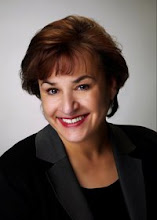.
My last post introduced menopause as a transitional period into the third phase of the human female experience. It's an experience alright! You can see why men steer clear from "women of a certain age" and attribute all ununderstandable behavior to "hormones". Since this is a predictable event, it is expected for a woman to more or less be troubled by the symptoms of menopause, such as poor sleep and its corollary, bad moods. In my opinion, improving sleep is a critical part of managment of menopause. It removes the tendency for grouchy
We know that replacing ovarian hormones alleviates the symptoms of menopause. Indeed, all hormones were originally gleaned from animal by products such as insulin, thyroid and growth hormone. By the 1970's it was determined that replacing estrogen alone placed a woman at higher risk for endometrial cancer for those women who had a uterus. In the 1980's combined therapy was introduced. The use of estrogen in the form of combined equine estrogen and progestin in the form of medroxyprogesterone acetate and others was used. This is not the same formulation as birth control pills. Varying regimens were developed from cycling women to mimic normal menstrual cycles, to combined continuous hormones, meaning both estrogen and progestin every day. Everybody was happy. Women took hormone replacement therapy, hot flashes disappeared. With the continuous combined regimen, periods disappeared as well. This was the cure all for everything, old age, heart disease, osteoporosis, some theorized Alzheimer's disease and Colon Cancer and age related eye disease.
Fast forward to the Women's Health Initiative Study. It was designed to test whether or not hormone replacement could be used as primary prevention for heart disease. That means it asked the question,
"Should you use hormone replacement to prevent heart disease in women?".
Women were recruited into the study from ages 50-70. The average age of women in the study was 63, and most were no longer symptomatic for menopause. Lots of women were recruited, many many thousands doing their altrustic duty for science. My mother was a participant. She called me one evening to say that the study nurse had called her to stop taking her pills. On July 9, 2002 the announcement was made that the study had been halted prior to its closure date. The observations has shown that the risk of cardiac events, stroke and breast cancer were increased. What you did not hear was that the risk of colon cancer, and hip fracture was decreased.
Good drug? Bad drug? Well in the eight years since that finding was released, the world of menopausal medicine has changed. Many women stopped taking HRT. Many women have a fear of HRT. Many women fear that HRT causes breast cancer. The actual numbers were very small. In the WHI study the expected number of breast cancers in the general population per year is 30 per ten thousand women. In the Prempro users the observed number was 38. There were an additional 8 breast cancers observed after 5.2 years of use. The observation came between years 4 to 5 years of use.
The Premarin only ladies had a different outcome. The same number of expected breast cancers 30/10,000/yr, but they observed 16 cancers. FOURTEEN LESS? Yes, this is where it gets very interesting. So now it seems that there is a conflict. How can this drug be good and bad?
Current thinking, according the the North American Menopause Society states that the confounding factors appear to be timing and whether or not a combination of hormones was used. Oh MY!.
I will leave you today with yet another layer in the mix of celebrity hormone promotion.
Suzanne Somers appeared on Oprah and made a huge impact promoting her hormone related regimen.
http://www.huffingtonpost.com/2009/01/29/suzanne-somers-daily-rout_n_162342.html
Next post will help to clear up the mess................
Subscribe to:
Post Comments (Atom)

I love Oprah, but I wish she'd stick with being inspirational and stop practicing medicine already.
ReplyDelete